Welcome back to Wonderland.
This series explores philosophy and political theory from first principles. Please start from the beginning to follow along with the story.
We live in a more powerful time than ever, in terms of both energy and potential control. Industrialization and globalization have caused more and more influence to be concentrated in the hands of increasingly fewer people. Individuals now wield the ability to annihilate nations, monopolize industries, and manipulate the public forum of billions. There is no check on these unparalleled capacities, no central authority to ensure that these forces are used wisely. Yet this is for the best; the question of who watches the watcher begets infinite regress. The power of potential, by definition, cannot be constrained. It evades or consumes everything that tries to stand in its way.
Ultimately, the fate of humanity rests on the many and the few, for the people have power too. Wars require soldiers, businesses buyers, and computers semiconductors. Power cannot exist in a vacuum; it is defined by relation, and changes in external conditions keep it constantly on edge, morphing and evolving into something new.
Increased availability of information and energy causes power to multiply, creating more potential for coercion and control in both politics and our personal lives. Big Government, Big Business and Big Tech are all shaping our social landscape at an accelerating rate. Historic eddies of family and local community are being subsumed by vast vortexes which suck us into their orbit. These cannibalizing currents are a major cause for concern across the political spectrum. But what, if anything, can be done about them? Are there ways to escape these mammoth trajectories, or is the cycle of history drawing to a close, a singularity? These are the topics we will explore.
To start our journey, let’s resume where we left off in Wonderland…
Wonderland is a free publication that outlines a philosophy and political vision for the 21st century. To support my work and receive updates on new posts, sign up for a free or paid subscription.
Chapter One: Chaos Reigns
You step into the smouldering city with your heart in your throat. The air is hot and thick with smoke. The opulent interior has been submerged under a grey layer of ash; towering townhouses reduced to rubble. A toppled produce cart has sent fruit flying across the soot-covered sidewalk. What were once cafe tables are now nothing but gnarled lumps of metal. In the distance, you can see a few people running frantically, precious belongings clutched in their hands. A crying child sits under a crumpled awning while a man with a crowbar extracts the trail of golden cobblestone that leads to the palace. Nearby, you overhear a trembling, dishevelled woman negotiating with a grinning man wrapped in a black cloak.
Did I do this? You wonder. Princess Muza told you to protect your watch and you gave up its secret key in order to get your body back. But that was only a few hours ago, could the marvellous Town of UM really have been attacked so quickly?
You see a man walking in your direction and ask him what happened.
“Nobody knows,” he answers. “Last night the cities defences just started to crumble. Guards came from the castle and told us it isn’t safe here any longer. The sacred tree that protects the city must have been attacked somehow, for now dark magic and dragons are everywhere. You should run while you still can, Ward of UM.”
“What about the Princess? Has anyone seen her?” You inquire.
“Worry about yourself, she can’t save you now” he says, picking up his pack of possessions and heading to the gate.
Bewildered, you gaze around the wreckage and suddenly notice a familiar trail of ants leading from the town into the woods. You follow their path through the forest until you eventually find yourself back at the site of the palace. Its gorgeous emerald spires have been plucked clean off, presumably carried away by dragons for their horde. The great green door is gone, revealing a hollow hall filled with smashed stained glass and nooks in the walls where jewels used to be. Burnt book pages flutter through the air; the grand library eviscerated. The only thing left unblemished is the white pearl of the throne room, which remains untouched amidst the wreckage. It is sealed completely shut; stronger than steel and without a crack in sight.
The ant trail guides your attention to a hole hidden in the earth several yards away. One by one they descend into the tunnel until only one remains, antenna pointing towards the pit, seemingly indicating that you should follow. Somewhat reluctantly, you do.
The passage is barely big enough to squeeze your body through, but after a few tight minutes scrambling through darkness, you are greeted by the searing glow of sunlight and sight of tree branches overhead. Tru’s moustachioed face appears before you as he reaches down to grab your muddy hand and pull you to your feet. You are back inside of the small conservatory nested within the throne room. Princess Muza sits with her back resting against the wall of the enclosure, looking pale and unusually childlike.
“I’m glad you got our message, and your body back,” says the girl softly.
“I’m so sorry Your Majesty, this is all my fault!” You cry. “I gave up my watch’s key to get my body, but I had no clue it would lead to this! I’m so sorry, I can’t even begin t—”
“This isn’t your fault,” interrupts the girl. “It’s mine.”
She points at the enchanted tree in the centre of the room. “The spell that protects the city is fine, but my people aren’t. They lost their faith in me and now UM’s being destroyed from the inside out!”
“Fine?! This place has been torn apart by dragons!”
“It’s the Mudjinnshin,” sighs the Princess. “Meera came to the castle last night and stole the lamp while I was gone. None of this is real!” She cries, looking up at you through tear-filled eyes. “It’s all an illusion! She wanted to scare us and it’s working. My people have given up on UM out of fear. They tore down the gate themselves to let those sorcerers in because they didn’t think I could protect them! I failed them, and now everything is ruined!” She begins to weep.
Tru kneels and rests a hand on her shoulder. “Please don’t cry, Your Majesty. Things look much worse than they really are. We have help on the way. We can still fix this.”
“Who else is coming?” You ask, brushing an ant off your leg.
“Excuse me dear,” replies the voice of Aunt Hillary. “I’m just trying to collect myself.” You turn to see the old woman emerging from the hole in the earth.
“Any news?” Inquires Tru.
“Well, she’s certainly not anywhere in town. Some of my scouts are still searching.”
“You’re looking for Meera?”
“Yes,” says Muza. “Without the Mudjinnshin’s lamp we’ll never be able to restore order to the city. This nightmare will go on until enough magic gets into UM that illusion becomes reality.”
“I don’t understand. I thought you said the lamp couldn’t trick people, it only shows others what the user knows themselves.”
“That’s true,” replies Aunt Hillary. “However, Meera is well acquainted with chaos, she’s merely revealing what it looks like to the rest of us.”
“Where’s the White Rabbit?” You ask.
“We’re not sure,” answers Tru. “He disappeared right after you left for Sect.”
“That stupid hare!” Muza cries. “Why didn’t he tell me that Meera was in UM before we left the palace? If only I had brought the lamp with me we wouldn’t be in this mess. One witch within our walls we could handle, but dozens? It’s too much!”
The four of you sit under the light of the little sun in quiet contemplation. The pearl begins to rumble with thunder as a storm rolls over the castle. None of it is real.
Chapter Two: System Overload
Section #1: The Modern Faith
Politics can be understood as the struggle for power, or influence. The ability to act as one wills within the world is the fundamental drive of all living things. Without this, survival is contingent upon the mercy of others, and thus easily stifled or snuffed out entirely. Man seeks power for the sake of security, and there are several methods to acquire it. Political influence is but one of many manifestations. State authority can be usurped by sheer brute force, or manipulated through blackmail and other incentives. Superior knowledge or technology has toppled tyrannies, while a tempting promise can infiltrate and castrate the will of others. Arguably, stories could be considered the ultimate source of power, as the beliefs and ideas they convey are the only reliable way to rally a group of people around a common cause.
The power of religion has decreased substantially over the past century, but the desire for moral imperatives persists. The death of God simply gave way to the rise of liberal democracy as the new social orthodoxy. Faith in supernatural forces transmuted into trust in science and rationality as sufficient tools to make sense of reality. Blind obedience to religious doctrine became conviction in the universal value of liberty, equality, and diversity. The abstract Good turned into the even more abstract Collective Good, which must be served as the highest ideal. Questioning the efficacy of any of these absolutes earns one a reputation as ridiculous, hateful, and dangerous. The religious attitude persists, only the divine authority of God has been replaced by the social authority of liberal democracy.
Armed with a sense of moral righteousness, the secular voter must evangelize on behalf of their cause; “trust the science”, “diversity is our strength”, “unity is our power”. The influence of the individual is contained to their political potential—the power they have to act as a voice for the people. To wield or seek power for one’s own purposes is seen as inherently nefarious; an affront to the democratic process which is designed to unite the many against the might of few. A degree of resentment is necessary to keep people actively campaigning to promote their vision of a better future. Other people are always the problem. Ignorance, bigotry, and political apathy are the only obstacles standing between us and a brighter tomorrow. The only fault a campaign can face is not enough converts, but the system itself remains an indisputable good.
Too much racism? Misogyny? Inequality? There’s a ballot box for that. Too much bureaucracy? Corruption? Intervention? There’s a box for that, too! That all of these issues have only gotten worse in recent memory should not be cause for concern, for once we have enough people on our side we can resolve these pesky problems once and for all! The political process is perfected—if only you could get with the program.
Section #2: Slave Morality
Faith in democracy carries with it the Christian idea of equality. All men being equal before God turned into all men being equal—full stop. We are taught to believe that it is not great men who make history, but the people who support them. The notion that civilization is shaped by an exceptional few is considered not only preposterous but outright insidious. To suggest that some people possess intellects and abilities that outshine the rest threatens the stability of our social fabric, and thus must be regarded as the ultimate evil. That quality of character has any effect on one’s social station is antithetical to the democratic ethos, and is therefore decried as elitist and egotistical.
Denying man’s natural will to power castigates him into mere service of others. The instinctual drive to dominate and conquer is suffocated by a culture that thrives only by diminishing individual potential. Humility, sacrifice, obedience, and deferral to authority are Christian values that continue to inform our ethical frameworks. Service, not achievement, is considered to be the real virtue. Failure to uphold these moral absolutes and instead pursue personal ambition creates a guilty conscience, alienating us from society and our innate call towards adventure and accomplishment.
The comfort of modern civilization leads to spiritual degradation. Without the threat of real violence, man grows domesticated and docile. Self-preservation becomes contingent upon submission to a higher authority rather than asserting your own. The willingness to abandon ambition and instead survive off of self-negation is commonly referred to as “slave morality”1; the will to power replaced by revering the meek and weak. This attitudinal inversion culminates in exhaustion and depression, as refusing natural inclination drains the soul of its innate vigour and vitality. Society turns ugly, dull, and heavy; divorced from the true source of its splendour.
Contemporary culture is defined by feelings of fear, anger, resentment, and cynicism. What else is to be expected when those with courage and confidence in their convictions are called arrogant and not aspirational? Pride is a product of purpose plus accomplishment, without which life becomes boring and meaningless. Pleasure is relegated to the domain of low-grade titillation—pointless materialism a poor substitute for real achievement and self-actualization. The drudgery of recreational drugs, drive-thrus, dim T.V, and demeaning pornography are the vices of a man in captivity. Unable to command real control over their environment, one’s only solace is to be found in mindless consumption and menial sin. Allowing indulgence in solely our basest desires keeps people complacent and constrained. More formidable appetites are suppressed through the slow trickle of senseless stimulation2.
Modern man experiences paralyzing anxiety because society has broken his spine. The spirit remains tenuously aware of this fracture, which is why a sense of injustice and subjugation follows him everywhere. Constant cries for revolution reflect the repulsion one feels at their own impotence—surely there must be more to life than this! The state of his condition inspires hatred in his heart; someone else must be held accountable so he is not responsible for his own disrepair. They blame the beautiful, powerful, and successful as the source of their suffering, rather than the system itself.
Section #3: The God That Failed
The will to power is innate, and not easily stifled just because modern culture deems it to be dangerous. In a democracy, whoever can rally the most support around their personality and campaign promises is granted special privileges, giving political authority to whoever wins what is essentially a popularity contest. Actual knowledge, insight, and ability is trumped by the charms of charisma and celebrity. Politicians gain prominence when they know how to incite a passionate reaction from the public, irrespective of if they have diagnosed problems correctly or have the capacity to solve them. Those seeking power are rewarded for excessive egos, hubris, and hostility—for it is far easier to engage an audience once you have identified a common enemy.
In fact, democracy relies upon division in order to function. When leadership is decided through competition, the inevitable result is polarization and antagonism. The system is zero-sum and winner-take-all, turning any political disagreement into a personal attack. If what other people want affects what you get, innocent differences of opinion become active threats to your reality. Unsurprisingly, then, getting enough people “on your side” is essential, as everyone else is quite literally against you. Conflict and animosity are, in fact, natural consequences of the democratic process.
The system claims to elect, when really it compels. The 49% is always subject to the will of the majority, which forces them to adopt whatever changes they choose. Being beholden to the whim of your fellow man is bad for mental health and social harmony. It creates an atmosphere of resentment and constraint because nothing is genuinely chosen—every rule and regulation is an imposition from some vague, collective order. The only real difference between democracy and totalitarianism is how many people are telling you what to do. Either way, it’s vicious; those who dare to dream big or think outside the box are stifled by constant regression to the mean.
Democracy is exalted as the fairest form of governance because “everyone gets a say”, but rarely does anyone actually get what they want. Politicians must campaign on platforms designed to appeal to as many people as possible, while voters are forced to choose between policies confined to a very limited range of potential. Radical reform is rendered impossible because any proposal too far outside of the Overton window is unlikely to receive sufficient support. All parties face pressure to capitulate to the lowest common denominator of public opinion if they wish to obtain power. Desire for nuanced conversations and novel solutions is unfeasible in a system that is based on group think and binary decision making.
Given this state of affairs, constant dissatisfaction with the current state seems inevitable. Those with a purposeful vision must succumb to the pressure of popular demand and logistical limitation, producing decisions that are cumbersome and hard to untangle. The web of regulations, special interest groups, financial pressures, and public opinion ties politicians to a tight rope of what is actionable, unintentionally prioritizing the status of “knots” over potential paths to progress.
Section #4: The Control Complex
Before the 19th century, democracy was commonly understood to be an ineffective and destructive form of governance—a critique that has persisted since Plato. Despite modern insistence on the virtues of collective rule, most Americans would be shocked to learn that “democracy” is nowhere to be found in their constitution or Declaration of Independence3. The founding fathers were aware of how tyranny from the majority can threaten individual liberty, and specifically designed a system to protect personal freedom. But power finds footholds wherever it can, and slowly the nation slid into a condition not so different than the one it sought to escape. Personal autonomy collapsed under the pressure of collective will, until the promise of life, liberty, and the pursuit of happiness became nothing more than an American Dream.
The problem of democracy is best understood as an issue of incentives. We respond to the rules of whatever environment we find ourselves enmeshed in, and will use whatever tools we can to get ahead. A civilization governed by the ballot box and subject to frequent changes in leadership is bound to prioritize votes over outcomes, as politicians have no reason to analyze and address issues successfully when popular appeal matters more than real results. As soon as there is incongruity between effective policy and electability, whatever the people think they want must be prioritized if a candidate wishes to gain office.
Long-term planning that values temperance and careful allocation of scarce resources is forgone in favour of obtaining votes. Political actors vying for transient authority are encouraged to overpromise and underdeliver, as failure to fulfill expectations can easily be blamed on the opposition. The temptation to drain the nation’s treasury for political prestige is magnified by the fact that anything left on the table is turned into a weapon in your enemies hand. Neglecting to earn public approval by exploiting the economy simply provides the other party with the same opportunity, creating a system that is quick to sacrifice prudence in favour of a “free” lunch.
Democracy declines into a state of dysfunction due to its ability to divide action from its logical outcome. Balancing the budget always becomes someone else’s problem. The system is not beholden to the laws of mathematics, it is the law, vested with the authority to contort truth in accordance with whatever the public wills. Centralized redistribution distorts market feedback signals through the fog of general demand, spreading an erroneous belief that collective desire can force reality to bend under sufficient institutional pressure. When a maladaptive policy fails to achieve its goal, evermore government intervention is always the solution, as damage caused by poorly planned programs can easily be papered over in the next election.
Frequent changes in leadership and term limits cause power to constantly shuffle hands, clouding our ability to judge what policies are actually effective and what maladies are a result of the old regime. Clear causal relationships are lost in a tangle of competing interests, contradictory information, and constant resource reallocation. Any attempt to plan for the future is rendered impossible in a state that is fickle by design. As gradual and reliable development is unattainable, enduring principles are quickly abandoned in favour of winning support through instant gratification.
When mob mentality rules, there is no underlying ethos to guide society. No effective system can emerge out of ignorance and averages. To function properly, decisions must be made with a specific purpose in mind and designed to integrate with the existing structure. Most voters lack the knowledge required to interrogate policies and evaluate them accordingly. Deferral to authority is necessary, which shrinks the realm of what ideas are considered persuasive and permissible. True democracy is not possible in practice because the public is in no position to make their own decisions. The premise of individual sovereignty is constantly abdicated and delegated to those claiming expertise—the need for powerful leaders cannot be overcome or ignored.
Section #5: The Elites
While democracy claims to reflect the will of the people, influence over this process remains in the hands of a select few. The unled masses will never be able to organize in such a way that truly takes power from those who have established themselves in positions of control. Leaders may change, but the essence of the system stays the same. This is because power, when clever, knows how to hide. Maintaining influence within a democracy requires real influence to withdraw from the public eye, ensuring that important decisions are never actually up for debate. The control circuitry has evolved to exist outside of the formal state, thus making it resistant to democratic displacement4. This fragmentation strategy insulates authority from public scrutiny, allowing it to operate and manipulate the political system from the shadows.
In order to liberate society from these invisible forces of tyranny, the real ruling class must be identified5. It is very difficult to know from the outside where actual power and accountability lies, for the prohibition on overt acts of force merely causes more insidious tactics to increase. Fraud and corruption slowly start to take over the state, as any tools impervious to election are the only means to maintain control. Politicians eager for power will find it easy to gain support through bribes and backroom deals, for public funds go further buying the loyalty of a few key cronies than they do trying to maximize general welfare. Indirect rule by foreign nations and special interest groups becomes the default state of affairs as politicians prioritize personal gain and are willing to reward whoever can funnel the most cash towards their cause.
This underlying network of finance and political favours is what political philosopher Curtis Yarvin refers to as the Cathedral, which earns its title by acting as the unofficial moral authority of the state6. Like a church, the Cathedral operates by determining in advance what modes of thought are deemed to be acceptable. By exerting influence over our intellectual institutions—mainstream media and the education system—unelected actors are able to prime citizens with a certain value orientation far before they reach the voting booth. This amalgam of academia and journalism acquires all the advantages of a formal branch of government without any of the accountability, subtly shaping public policy while avoiding being held responsible for the results.
Power operates most effectively not by persuading the conscious mind, but by delineating in advance what it is possible to experience7. Competition in democracies is cerebral—unable to forcibly impose their will, political actors must occupy the psyche of the people instead of physical space. Influential parties leverage the fears and ignorance of the public to their advantage, advancing their own agenda by convincing the common man that their aims are in alignment with his best interest. Lobbyists will fund studies, seek subsidies, and manipulate schools to promote a certain narrative, such as exaggerating the health benefits of the dairy industry8. Those who wish to control society benefit from naiveté. The powers-that-be appreciates idiots, and will do everything they can to manufacture more of them9.
The decline of self-determination and growing corruption of democratic governments are not random developments, they are the natural consequence of the state driven to its logical conclusion10. Respect for institutional authority has become a relic of the past, and for good reason. As the alleged virtue of collective rule gives way to systemic dysfunction and decay, widespread alienation is to be expected. Even the leaders no longer believe the platitudes they espouse, nor do they posses much confidence in their own authority. Awareness of the dishonesty required to occupy positions of power calls into question the legitimacy of their social station, resulting in a sense of shame and moral degradation.
The truth of the situation is that leaders are prisoners of the present political system just as much as the public. People don’t get to choose the structure of the state they are born into, all they can do is attempt to navigate it to the best of their ability. Those who find success are no more at fault than those who struggle, for both are beholden to the same set of incentives and constraints. No one is to blame how things are—existence is fundamentally innocent and willed by no one. However, it is everyone’s duty to pursue greatness and wonder what could be, to discover what new potential glimmers just beyond the horizon.
Section #6: The New Leviathan
The historic power of nation states is beginning to fade in light of the modern global economy. Transportation and communication networks are faster than ever, bringing people closer together and subsequently shaping a new era founded upon information and technology. The industrial society is giving way to one based on knowledge. For the first time in human history, individuals are able to aggregate massive amounts of power and influence independent of any formal political authority.
This new millennium offers significant emancipatory potential to those who seek to step outside the status-quo, while also raising concern over how exactly these societal revolutions might be achieved. For every major technological development throughout history, a reactionary movement protesting its potential perils invariably emerges. In the digital era, Artificial Intelligence has come to be the new leviathan which is said to threaten our very existence. Popular narratives claim that machines will soon take our jobs, replace our institutions, and eventually displace the human race itself.
Algorithms track our decisions, control the content we are exposed to, and influence our worldview as a result. The internet allows us to connect and explore like never before, while simultaneously increasing feelings of isolation and antagonism. The public is no longer united by a shared prime time television spot or daily newspaper. When everything is customized and curated, we lose our common ground. This is a sound reason to raise alarm, but technology itself is not bound to do harm. The complex dynamics underlying our media feeds are programmed to do a single thing: act as a mirror reflecting whatever signals it receives. Those who are critics of this technology forget their own vital role in the equation—attention is all that is needed for something to propagate. Whatever you consume, you’re also feeding.
Artificial intelligence will do wonders when it comes to automating away tasks we never enjoyed doing in the first place, but rational metal will never replace the sensual realm of organic experience. Machines excel at simple, logical, repetitive tasks; the things we most consider to be “work”. But just because a computer can now file taxes, drive cars, make deliveries, code programs, checkout groceries, run factories, render animations, or generate unique creations doesn’t mean that you’ll soon be out of a job. More energy will simply be made available for the activities we actually enjoy doing. Tactile, artistic, emotional, interpersonal, embodied crafts will become the dominant careers. Working with material goods and other people is what humanity does best. With tiresome duties automated away, all that will remain are opportunities to play.
A computer could never be a better bartender or hairdresser, nevermind a therapist or movie director. The complexity and social elements of these professions are precisely what make them so engaging and immune from digital imitation. Even if a chatbot could be trained in psychoanalysis, or a feature film generated from a simple prompt, the resulting product would be functional but alienating. Connection with other living beings is a core value we all share, a spiritual calling that isn’t going anywhere.
Fear of annihilation by AI overlords is best relegated to the domain of science fiction, but this fixation does contain a seed of truth; intelligence pulls. Just as homo sapiens arose from apes, something greater still is destined to emerge out of us. Assuming the human race represents the height of evolution is nothing but biological narcissism. Intelligence is a phenomena that moves through us, constantly striving to improve, break barriers, and explore new potential. Attempts to suffocate this innate drive will always prove to be unsuccessful, for power is best defined as that which is adaptable. Stasis means death. Constant expansion and reinvention are the only alternative.
Chapter Three: The High Witch of WU
The night before the city fell, a woman waits in the woods. From the cover of darkness,
Meera, the High Witch of WU, watches as Princess Muza follows the White Rabbit from the palace. An hour passes. Then another. Eventually, the witch pulls a second spell from her robe and opens the slip of paper, transforming her into an exact replica of the Princess. She then leaves the forest and rushes into the palace, feigning terror.
“Guards!” She yells. “There is an intruder within our walls! Bring me my magic lamp, I need the Mudjinnshin’s counsel at once.”
Her command is promptly obeyed and the golden lamp is handed over.
“I must confer with my Wazir in private,” the mirror of Muza insists. “All of the men guarding the palace must go into town and warn my people that UM is under attack. Don’t worry about me, I have an escape plan in motion. But hurry and tell the others!”
Once the palace is empty, Meera rubs the lamp to summon the Djinn from within.
Silver spools of smoke trail out, coalescing into the face of an old man who is instantly aghast. “Not you!” The Djinn gasps. “What have you done with the princess?! Guards!”
“Quiet you fool,” snaps the witch. “There is no one here other than you and I. Rather hypocritical of the girl to forbid magic in her city while keeping you all to herself, now isn’t she? Thinks she’s better than the common people, is that it? Tucked away in her emerald tower while the rest of our world struggles for survival. Well, not any longer. Soon everyone in UM will have a taste of real power. No one placed above the many, all at the mercy of all—real equality.”
“Djinn, I command you to cast off the enchantments that protect this city. It’s high time that the rest of Wonderland get a share of the riches that this wretched town has been guarding so greedily.”
The Djinn chuckles. “I’m afraid, my Wicked Highness, that I only have the power to show others what my master knows themselves. I cannot create lies with my spells.”
Meera rolls her eyes. “Very well then, I command you to show this city the chaos and fear that it has tried so long to escape. Look into my mind and you will know these are forces that I am well aquatinted with. I’ve seen darkness, now show the rest of them!”
Instantly, the Djinn dissipates into a grey cloud of smoke which grows and spreads throughout the palace, and then pours out into the surrounding town. In the wake of the fog the air grows cold and pieces of glass start to fall from the sky as the crystal lattice protecting the city begins to crumble. Within seconds, shrieks of dragons can be heard in the distance as they descend upon the castle.
With a satisfied smirk, Meera pockets the lamp and returns to the cover of the woods.
“It’s done,” she says. “Bring me somewhere no one can find me and return only once the tree has withered. It shan’t be long now, my men are already gathered outside and ready to offer their services once the frenzy begins. That girl has played princess long enough—it’s finally time for this place to be given back to the people.”
Like clockwork, visions of the cities defences crumbling throws the town into chaos. People panic. Some try to hide in their homes while others hurry to escape. The gate guarding UM is soon torn from its hinges, allowing citizens to rush out and strangers to pour in. Sorcerers and witches prepared for the calamity carry protective potions and unbreakable seals, which sell quickly to whoever pays the highest price. Once the entrance is open, foreign forces ransack the town, looting and pillaging everything in sight. Outsiders long resentful of the cities splendour are all too eager to give it a taste of real terror.
Chapter Four: The Colony Has No Queen
Section #1: Tipping Points
When a system looses connection with its foundations and becomes divided against itself, dysfunction and revolution are imminent. A state weighed down by corruption, overregulation, and internal contradiction grows fat and slow, unable to react to the changing environment and challenges it faces. Negative feedback loops start to spiral out of control, increasing tension until spontaneous combustion is the only option as ignored inconveniences compound into catastrophe.
Disillusionment with national authority rises as the quality of social services begins to atrophy. Taxation increases in conjunction with crime and drug addiction, calling into question what, if anything, the state does effectively. The filth and demoralization so prominent in “advanced” civilizations is both degrading and spiritually suffocating. It’s no coincidence that fantasies of escaping to a cabin by the sea are so pervasive—they speak to a collective longing for free space and fresh air.
The information era is ushering in a new age for society. Technology, not popularity, is now the most powerful source of change in today’s world. As the internet unlocks new possibilities, our legacy institutions are rapidly becoming outdated. Just as the agricultural and industrial revolutions created novel forms of social organization, so too will the digital era. Microprocessors will start to subvert and liberate us from the state, generating new societies founded on choice, free from the confines of national authority and collective tyranny11.
When the ruling class is unable to adapt to the potential produced by advances in technology, they lose their grip on society. We are watching this phenomena unfold in real time as traditional media outlets struggle to stay relevant in light of the internet. The democratization of information and communication platforms ironically pose the greatest threat to democracy as, for the first time in human history, people are able to ideate and collaborate across state lines. Despite all physical territory being occupied long ago, new conceptual frontiers can still be found in the cloud.
Section #2: The Sovereign Individual
Electronic currents are pooling together to create a new global power. Like a hydra, any attempts to cut it down will only cause more energy to rush in. This is because the internet, which propagates the beast, thrives from challenge and suppression. Digital networks are free to writhe underground and shoot from the sky, making domination by any political authority unlikely, if not impossible. Cryptocurrency allows people to transact globally while protecting their assets from unwanted taxation and regulation. By insulating wealth from national extortion, governments will no longer be able to extract value from their citizens without offering services they are willing to pay for.
The cybereconomy will give rise to the era of choice, of exit over voice, of individual sovereignty in lieu of state tyranny. Instead of trying to win their freedom through national election, those unsatisfied with the political system will soon have the ability to simply take their business elsewhere. Attempting to convince an entire country to support one’s personal desires is a foolish endeavour. So long as the right to secession remains an option, leaving a troublesome state of affairs is much easier than trying to impose radical reform from within a broken system.
Voting with your dollar and feet has a great advantage over the ballot box as it actually leads to the results you desire12. There is no reason why the free market should not be able to offer a diversity of effective political systems in the same way it does hotels or dining experiences. So long as there is the right to exit, any ineffective service would soon be replaced as customers explore preferable alternatives. The notion of defecting from traditional governance structures and instead commercializing sovereignty is sure to offend those who still have faith in democracy, but nothing about this proposal insists that they must come along for the journey. In fact, exposing the nation state to genuine competition will almost certainly increase quality of life for everyone, as traditional institutions find themselves forced to prove their worth and innovations born from experimental governance systems start to influence the rest of the world.
This new vision of self-determination will allow people to settle political differences without resorting to conflict. Those with similar values are now able to communicate and collaborate across national lines, no longer bound by whatever system they were born into. Instead of trying to impose change from the top down, stepping outside of the status-quo and organizing from the bottom-up will be the way that societies grow. The internet’s ability to operate outside of traditional boundaries presents an exciting challenge to outdated and unchosen political hegemonies.
Section #3: Decentralizing & Recentralizing
The ability to escape and explore novel territory allows new modes of being to emerge. Everything interesting evolves on the periphery, outside the realm of convention and tradition. Capitalism deletes all intrinsic code in favour of a mobile and variable set of axioms. It specializes in non-specialization, continually mutating and melting formerly solid structures into a milieu of abstract potential. This new order of disorder is alive and unpredictable, obsolescing institutional authority and replacing it with the dynamic sway of complexity13.
The edges of a system are where growth and change happen. Nature and culture are mutually constructive, each pushing against and influencing the other in a process known as synergy. Top-down pulls and bottom-up wills both activate energy, which must meet, negotiate, and learn to cooperate somewhere in the middle. The pressure produced by these competing forces meeting is what gives them their character. Contrast and intensity are required for meaningful adaptation to occur.
The urban densification brought about by the industrial revolution will soon start to reverse as a consequence of the information age. Without the pressure to congregate in factories or office buildings, people will start to disperse back into smaller cities and local communities. This fragmentation into a plethora of miniature sovereignties shall be more similar to medieval Europe or ancient Greece than the multimillion member megacities our modern era has grown accustomed to.
Local communities have an advantage over vast political bodies in that the leaders are closer to and thus more familiar with the problems they face. Issues can be identified earlier and resolved faster when not beholden to the complicated rules and countless regulations inherent in large bureaucracies. Small, sovereign municipalities are agile and adaptable, making efficient and effective governance actually possible.
Section #4: Outcomes > Inputs
It is not the size of the state that matters, or whether the state is a monarchy, oligarchy or democracy, but rather whether the state serves the people or not14. Given the consent of the governed, any form of government is equally legitimate. As the decline of historic states accelerates, established authority will give way to new institutions that operate more effectively. Why participate in a democracy when individual liberty is better secured through other methods? Any polity that successfully provides law, order, opportunity, and autonomy will eagerly be adopted by those seeking prosperity.
In truth, the quality of a nation’s leaders matters more than how they acquired office. Personal freedom and economic progress do not emerge spontaneously, they are the product of a carefully administered and well organized society. There is an immense need for genuine vision and direction in our current culture, and this duty cannot be assigned arbitrarily. If efficiency and stability are to be achieved, positions of power must be granted to those capable of handling this responsibility, not whomever the public believes to be worthy.
If societies wish to organize peacefully and without conflict, unanimous consent of those participating in the system is necessary. Agreement upon a permanent and predefined set of rules is easier to establish than the constantly shifting legislation that defines democratic organization. Remove democracy from the equation and “politics” becomes a thing of the past. The need for argumentation and public persuasion fades away when there is already a consensus on how things are run.
Practically speaking, the state offers a service like any other corporation. It charges its citizens through taxation and provides certain rights and legal protection in exchange. However, unlike other commodities, customers have no guarantee that their money will purchase access to the type of service they would like to receive. When everyone has influence over the system, the resulting product grows contorted and untethered from any consistent operating principle. The state can extract exorbitant prices from its clientele without facing any obligation to fulfill its end of the bargain. The general dysfunction, inefficiency, and corruption that has grown so pervasive in democratic societies is a direct consequence of this institutional asymmetry. Without exposure to market competition, nations hold uncontested monopoly power over their citizens.
Section #5: City-as-Company
By reframing how we conceptualize the relationship between people and their states, new forms of political organization become possible. Instead of nations controlling economies, soon economies will start to create independent nations of their own. Founded online and funded by cryptocurrency, proprietary sovereignties shall emerge which give legacy authorities a run for their money. For the first time in history, governments will face pressure to prove their worth and actually serve their citizens effectively, or else risk losing them to market competition.
This inversion of convention creates a new landscape for political innovation. Viewing the state as a business like any other turns good governance into a profitable venture. People are willing to pay a high price for personal autonomy and social security, especially when the alternative is anarchy. However, solutions will only arise when competent leaders are incentivized to step up to the plate. Personal gain is always a better motivator than vague appeals to civic duty or collective good.
Commercializing sovereignty and transforming the management of cities into an entrepreneurial endeavour benefits as it mobilizes talent that would otherwise have no interest in politics. Brilliant executives can be persuaded into leadership positions only if they are rewarded handsomely for the expertise they confer. When one’s personal prosperity rises proportionally to the customers they serve, their interests are put in perfect alignment with those of their citizens. In the future, every great head of state will be a multimillionaire15.
Modelling the city as a company removes all ambiguity from the system. No longer beholden to the fickle forces of democracy, consistent policy and long-term planning becomes possible. When you elect to participate in one of these commercial states, you know what you’re signing up for. All authority is concentrated in the hands of a single individual, providing them with exclusive control and complete responsibility for any failure. If citizens are dissatisfied with their leaders, they maintain the right to exit and move elsewhere. Thus, running a lean, clean, prosperous, and orderly society becomes the sovereign’s sole priority, as this alone is what will make them wealthy.
Section #6: The Battle of Ideas
Politics is a framework we impose over society. The landscape of possibility contains many potential structures—both broad attractor states and unexpected alcoves. Money can be used as tool to navigate and manipulate this terrain more effectively, acting as a meta-system that transcends static limitation. Market competition forces organizations to adapt and evolve. Genuine political freedom can only be achieved through this contrast and constant friction, as any absolute authority is a tyranny. Compelling people to participate in systems they deem to be unsavoury is a recipe for dysfunction and rebellion. Individual choice and consent based on mutual benefit is the only alternative, allowing many unique configurations to emerge each tailored to their own set of values.
If war is politics by other means, politics can also be seen as its own form of war16. Everywhere there is disagreement there is untapped opportunity to rule. Socialist and libertarian societies should be able to coexist and compete on the world stage without entering into conflict. The logic of an idea, or the virtues and flaws of a given ideology, will unfold organically over time. Natural selection works on an abstract level as well as physical, weeding out what is unsustainable and refining that which remains viable.
There can be no absolute political ideal because reality is constantly under production. Any fixed formulation invariably degrades—change is the only constant. Totalizing truth claims are disingenuous, as the nature of the universe is indeterminate. Beliefs beget outcomes; the virtual realm of potential is actually more real than the physical. Attention is the precondition of manifestation, everything that is existed as a thought, first. Focusing on an idea imbues it with its own causal power, which then starts to act upon the world of its creator. Understanding this, thinking or writing about a subject is not a passive representation, but an active transformation that opens new paths of potential. By writing a universe, the writer makes such a universe possible17. The power of attention and story should not be relegated to the domain of fantasy, for these are the very tools that we use to construct reality.
Chapter Five: Origin Stories
“I’ve been thinking,” muses Tru, “that the only way Meera could have gotten into UM undetected is if she cast off her magic before she entered. Otherwise the enchantment over the city would surely have alerted me to the presence of her power.”
“Then how did she manage to turn me into a mouse with only that piece of paper?” You inquire.
“Good point. The defences are designed to detect any effect without reasonable cause. Our entire city is founded upon this principle of continuity—there must be no breaks from reality. Anything that defies this axiom is not welcome within these walls.”
“Well, that’s not entirely true,” says Princess Muza.
“What do you mean?” Asks Tru.
“You,” says the girl, pointing at you. “You came from the land of unreason, suffering from loss of identity and lapses in agency. When I made you ward, the spell protecting the city had to adjust to account for your spontaneity, which must have lessened its sensitivity to other sources of inconsistency! A slip spell is nothing compared to the chaos and uncertainty introduced by an outsider who has no idea why they are here!”
“That makes sense to me,” agrees Aunt Hillary. “And let’s not forget, those mysterious fugues are what brought you here and caused you to take that lamp in the first place. Without them, you never would have come to UM or been brought under its wing. I bet Meera realized that a confused ward could mess up the cities defences, and has been using fugues to control you like a puppet.”
“You’re saying that Meera wanted me here? That she’s been manipulating me from the very beginning?!”
“It would seem so,” answers Tru. “How else would you explain such a strange series of events? Her using you to get inside, well, that makes sense of everything!”
You reflect upon all that has happened since you came to Wonderland, rewinding to the very start of this adventure, and suddenly realize that a vital clue has been missed.
“Wait a minute!” You cry. “No one’s seen the White Rabbit since I left last night, and he’s the one who led me to Wonderland in the first place! He must have been helping Meera this whole time… And if that’s the case, I think I know how we can find her.”
You share your theory with Aunt Hillary and instantly she dissolves, turning her entire colony into thousands of explorers which descend deep into the earth.
Chapter Six: A City in the Cloud
Section #1: The Network State
The state in the third millennium will be defined by information and technology. Power conducted through ideas and electricity is starting to carry more influence than legacy institutions, and for good reason. Pressure from outside innovation is causing the old regime to crumble at an accelerating rate, exposing weak spots and making room for something new to fill the cracks. Outdated, hierarchical formulations are giving way to grassroots, data-driven modes of organization: the Network.
For Balaji Srinivasan, a Network State is a new type of nation that starts as an online community and eventually creates its own society. A key concept to his vision is to build a city in the cloud, first. Start with a foundational principle and use the internet to find people who are interested in the idea and able to help make it a reality. Only once a strong community, economy, and constitution has been established would they try to acquire territory.
Balaji calls this embryonic version of the state a startup society; an open-source organization with big ambitions. By encouraging members to eschew convention and instead imagine how future nations might function, they actively help to create them. Using the internet lets people bypass political roadblocks without needing to wait for permission from legacy institutions. Designing a legal system in abstract, intellectual space first allows people to identify, debate, and resolve potential problems before they are put into practice.
People have a tendency to seek their equals. Great men long for a great community to enmesh themselves in, which tightens and heightens their power. Cyberspace allows those with similar ideals to find and connect with one another like never before, creating a new frontier for political potential. Highly aligned communities pursuing their own agency will form in the cloud, concentrate their pressure, and eventually reign upon the earth.
Section #2: Vision & Value
The ancients founded a city at once, all in a entire day; but the elements of the city first needed to be ready, and this was the largest and most difficult task18. For a startup society to be successful, it must first recruit producers, not consumers, which means it needs a purpose. A nation must be designed with the intention to operate as cohesive entity, with a key calling at the core of its being. This north star will provide a guiding light for citizen and sovereign alike, binding them to a common principle and uniting their action under a higher ideal which they all aim to achieve.
The power of belief and strength of a shared vision should not be underestimated, for dreams are the precondition of reality. Every great kingdom and company began as mere fantasy, armed only with conviction in the capacity to make it manifest. New countries must begin with new stories, as without narratives, we are lost, untethered from our past and stumbling blindly into the future. Religions and myths order society by imbuing it with a certain point of view, offering a foundational framework and creating a collective identity. When there is agreement on what is, people are able to coexist and cooperate with confidence as they are united by a common understanding.
A single principle must be used to inspire and organize a society. Try to do too much at once and signals start getting confused. Even a simple premise contains so many practical implications that it alone shall likely influence huge swaths of life, but with clarity and logical consistency19. Throughout this series, the foundational principle has been a metaphysics of complexity. Applying a simple understanding of system dynamics to politics creates a whole host of unexpected insights and possibilities that are united by a common core. This holistic approach calls us to imagine a society free from the confusion and many contradictions we’ve grown accustomed to, offering a compelling vision for the next phase of our social evolution.
A society inspired by the inner working of ant colonies or murmurations of starlings requires every member of the system to be in alignment. The group only flourishes if each participant excels at its particular purpose, making its own decisions which culminate in an emergent harmony orchestrated by nobody. Too much top-down control and the system loses its antifragility—individual agency is essential. This key insight of complexity is why the vow taken by initiates into Ayn Rand’s secret city shines with such vitality; “I swear by my life and my love of it that I will never live for the sake of another man, nor ask another man to live for me." Collective prosperity is achieved only through personal choice and liberty.
Section #3: Myth & Mystery
A metaphysics of complexity calls us envision entirely new political systems and also carries mystical implications. The key concept of emergence naturally implies that there is more to reality than what meets the eye. In fact, the higher order, abstract plane of concepts and symbols is where everything meaningful actually happens. Facts alone are more inert than rocks, they cannot be used as building blocks. Rather, it is in the realm of value and motivation that the elements of our world take on real significance. Emotional evaluation is what calls attention and creates aspiration, structuring our earthly experience in order to elevate higher ideals.
When there is a mythic dimension to some undertaking, that knowledge becomes touching and inspiring. Ancient legends speak to truths deep within our being and are able to arouse profound amounts of passion. The collective wisdom contained within these tales is a wellspring of power and untapped potential. A great myth is what makes a social movement terrific and heroic20, it’s the charm that makes it tick. The power of these stories rests not in their scientific accuracy, but their magical capacity to transform the collective psyche and subsequently reshape reality. People don’t tell stories. If anything, it is myths that mold entire civilizations of men.
Part of the magic of mythology lies in what is left unsaid; the murky realm of mystery. Some degree of secrecy is necessary to create intrigue and keep a story alive. Explain every allusion and there is nothing left for the subconscious to explore or sink its teeth into. Imagery is evocative precisely because its meaning is intuitive. Exposing symbols to the rational light of consciousness robs them of their essence and flattens them into crude representations rather than allowing them their own psychic space. The drive to demystify, disenchant, and objectify reality is a denial of deeper wisdom, one that leaves modern man more lost than ever. Instead, we propose a return to what has been forgotten—to the time of terra incognita, to secret societies, where there be dragons, adventure, and buried treasure21.
Practicing rituals and sacred rites within a society creates a collective consciousness, a shared narrative and identity that promotes peace, stability, and prosperity22. Finance the state like a corporation but fuel it with all the symbolism of an ancient religion. Build the city as a testament to the gods and watch as they come to inhabit it. Identify heroes, establish alters, and inaugurate traditions that honour the forms of power you wish to cultivate, for these acts of exaltation are what make civilizations great. Festivals and ceremonies strengthen community and serve as a reminder of unity. While the mechanics of the city should be transparent to everybody, maintain a veil of exclusivity by concealing other cultural elements behind a thick curtain.
Section #4: Leadership
A founder with a powerful vision is the first ingredient in any startup society. It is he (or she) who is moved by an unshakable sense of duty to create something new out of thin air. They require the mind of a philosopher, the strength of a leader, the passion of an entrepreneur, and the wisdom of a sage. Ability alone is a mark of legitimacy, for making a city from scratch is no frivolous endeavour. Only a great spirit is capable of breaking through and challenging convention while inspiring others to do the same.
The founder must be so devoted to his own vision that nothing can cleave him from his cause. Wealth and admiration may result from the venture, but they are far from the heart of his ambition. Purity of purpose and an unrelenting drive to make it manifest must be his soul motive. Anything less and his attention will easily stray elsewhere. Undivided care for the project and the people involved is all that matters. Clarity, integrity, and dedication to this degree is how great men shape history.
Of course, no one can rule alone. Running a government is not unlike conducting an orchestra—no prime minister can achieve much without an able team23. Adopting too much responsibility is a recipe for disaster, so the founder must also be an excellent delegator and judge of character. Finding the right people to trust with running a city is no easy task, for they have the potential to be your greatest asset or liability.
Loyalty and competency can never be guaranteed, but it’s wise to avoid those with something to prove. Inflated or punctured egos both distract from the business of administration and indicate a person who is unreliable. Good natured, creative, practical people who enjoy solving problems and aren’t afraid of a challenge are well suited to positions of power. They should have a personal connection to the city’s mission and view their involvement as a lifelong duty, meaning they will not be easily tempted to leave office. A stable base of experienced and trustworthy staff is vastly preferable to a state where control is constantly changing hands.
Section #5: Cycles of History
If the state in the third millennium is going to start looking more like a company, with an unelected leader at its helm, then how are they replaced? The sovereign could select their own successor, or a board of directors could elect a new chief executive officer, but hereditary monarchies are rather lindy. The benefit of keeping leadership within the family is that children are raised to prepare for this responsibility. The otherwise daunting task of ruling a society would be second nature by the time they are ready to rise to the occasion. The ability to plan over the course of centuries and importance of economic prudence would be magnified as each new leader inherits the legacy and prestige cultivated by their forefathers. When it’s your family name on the line, rulers have the most skin in the game to ensure that their city continues to thrive.
Inheritance alone will not make a dynasty last until the end of time, but neither will anything else. States have life cycles just like the individuals who created them. They come and they go, they are born, they grow, their frontiers change, they decay and dissolve again. This is a natural process24. Any political society that claims to be eternal is lying to you. Nothing lasts forever. However, to maximize chances of survival, a state is strongest when it is flexible; when pressure from the outside world will not shatter it but simply encourage necessary change. Versatility in the face of instability is the real political insight that “Dark Enlightenment” thinkers seek to propagate. Instead of forcing the state to operate through the slow, infrared signal of general will, ultraviolet agility has always been associated with aristocratic elegance and prosperity.
Some readers might protest that nothing ever changes, and all of the above is nothing but hot air. They are wrong, as only time will tell. I say this with confidence because, as a matter of fact, change is the only constant. Deep tides may pull in similar directions, but the surface manifestations are infinite and indeterminate. Society is a product of technology and mythology—these two forces alone interact to shape history. We, with our flimsy words and silly fantasies, can will new realities into existence. Every form of power shares the same source, and it isn’t force. Compulsion is the opposite of compelling. Truth and beauty contain their own call. That is the story we are telling.
Chapter Seven: Eyes on the Edges
A few hours later, a glimmer of gold emerging from the hole in the grass catches your attention. Princess Muza lets out a gleeful shriek of surprise and leaps to snatch the magic lamp from the thousand ants that carry it.
“How did you find it?!” The girl asks.
“It’s just as our hero here suspected,” says Aunt Hillary, emerging from the earth and taking an exhausted seat under the tree. “That rascal of a rabbit has an entire network of tunnels underground. Connecting UM to WU and running from Thumb all the way to Sect. I had to spread myself as thin as possible, sending a scout down every passage until one caught a whiff of that witch. She wont be giving you anymore trouble, that’s for sure.”
“Where is she?”
Aunt Hillary smiles. “Exactly where she deserves to be, hiding in the last place anyone would look—The Maze. The White Rabbit probably thought himself awfully clever bringing her there, but now that my colony has filled in her escape tunnel, the enemy of good reason is going to have a tough time getting out without it.”
You, Tru, and Princess Muza all cheer in delight.
“What about the rabbit, any sign of him?” Inquires Tru.
“Not yet, but a few members of my colony have not returned to me, which is strange. I’ll need to dig deeper into the matter,” answers Aunt Hillary.
“Don’t worry about that now! We have the Marvellous Mudjinnshin!” Muza exclaims, rubbing the golden lamp and summoning her dear Wazir.
The Djinn appears. “It’s good to see I’m in the right hands again,” smiles the old man.
“O’ Wonderful Wise Wazir, please free my city from these visions of chaos and fear,” pleas the Princess.
“With pleasure, my dear,” grins the Djinn, bowing before her.
A great silence falls upon the conservatory, the thunder and cry of dragons vanishing instantly. Trepidatiously, Muza opens the door to the throne room, revealing the Emerald Palace in all its glory. Sun beams down from the skylight above, casting the entire castle in a warm, golden glow.
Princess Muza turns to Tru and tells him to gather the rest of the guards at once. “There are still dark forces within our walls. We have work to do.”
Continue to Season 2, Part 8: Glory
I hope you enjoyed this journey down the rabbit hole, and I would love to hear any feedback you have to share. I plan on hosting a livestream soon after this episode releases where I dive a little deeper into the topic, answer questions, and get into some of the areas and implications left unexplored. This philosophy project of mine is broad, complex, and constantly under development. If you want to keep up with me and find out what I’m up to or when I release next, please subscribe to this series and follow me on X or Instagram. If you wish to share your thoughts, you can email me at janeblooms8@gmail.com, or leave a comment below.
Thank you so much for visiting Wonderland.
Wonderland is a free publication that outlines a philosophy and political vision for the 21st century. To support my work and receive updates on new posts, sign up for a free or paid subscription.
From Nietzsche, obviously
Much of this paragraph was influenced by Costin Vlad Alamariu’s “Bronze Age Mindset”
From The Cato Institute, “On Democracy Versus Liberty”
From Balaji Srinivasan’s “The Network State”
From Nick Land’s “The Dark Enlightenment”
From Curtis Yarvin’s “A Letter to Open-Minded Progressives”
From the CCRU’s “Lemurian Time War”
From Nick Land’s “The Dark Enlightenment”
From William Rees-Mogg and James Dale Davidson’s “The Sovereign Individual”
Ibid
Ibid
This is all paraphrased from the CCRU’s 1997-2003 Writings
From Hans-Adam II’s “The State in the Third Millennium”
From William Rees-Mogg and James Dale Davidson’s “The Sovereign Individual”
From Balaji Srinivasan’s “The Network State”
From the CCRU’s “Lemurian Time War”
From Numa Denis Fustel de Coulanges’ “The Ancient City”
From Balaji Srinivasan’s “The Network State”
From James Burnham’s “The Machiavellians”
From Balaji Srinivasan’s “The Network State”
From Jordan Peterson’s “Maps of Meaning”
From Lee Kuan Yew’s “From Third World to First”
From Hans-Adam II’s “The State in the Third Millennium”

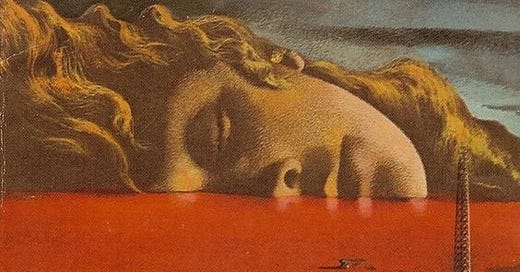


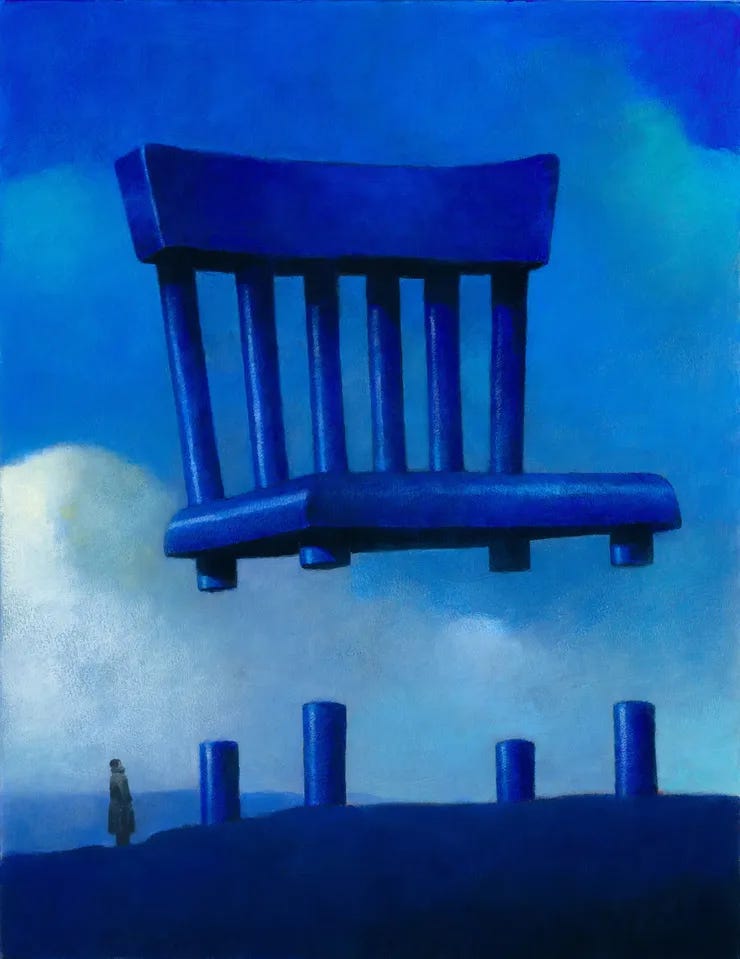

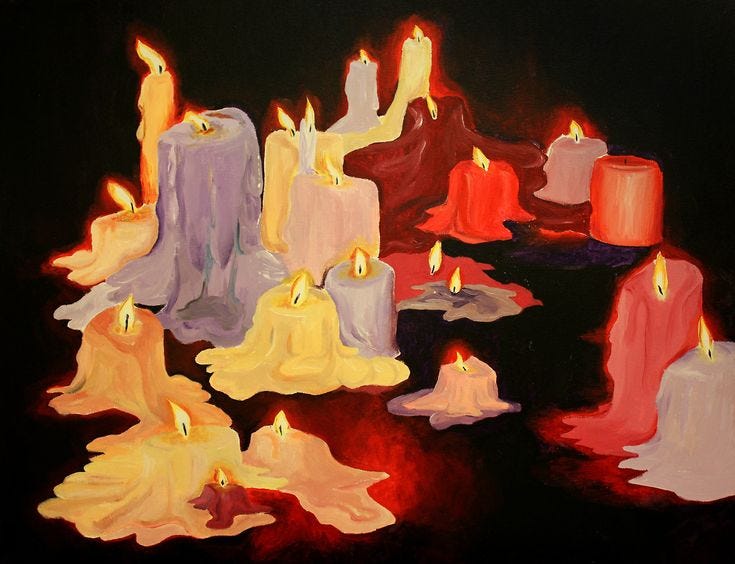
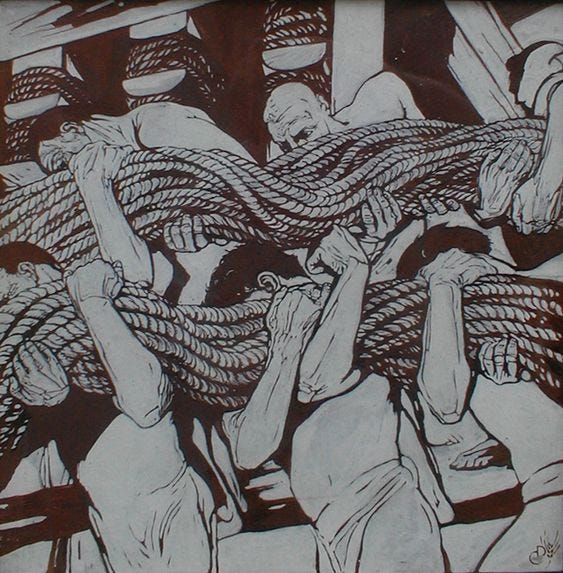
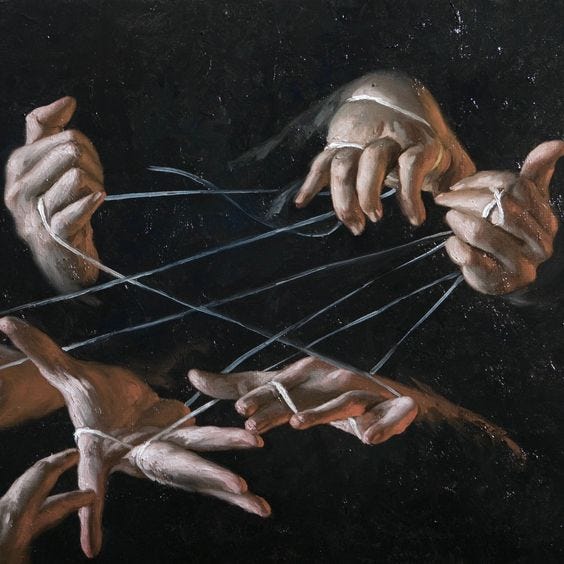
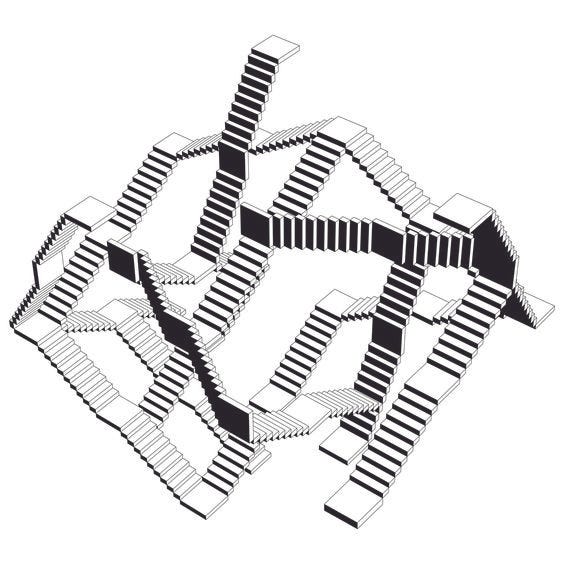
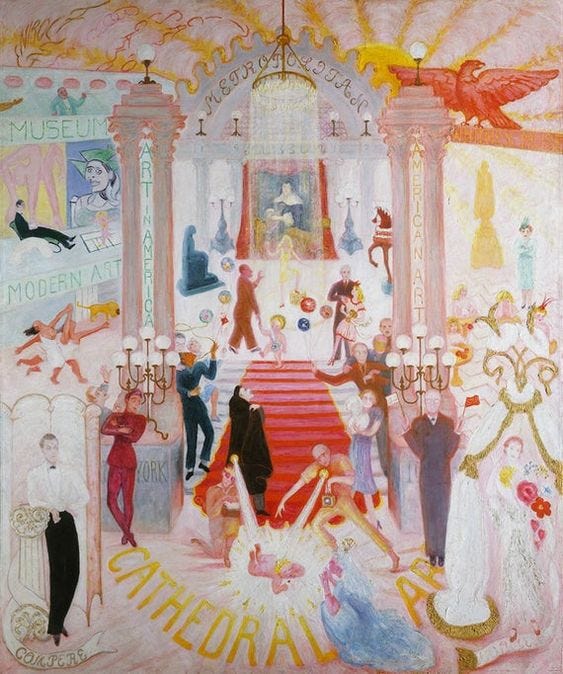
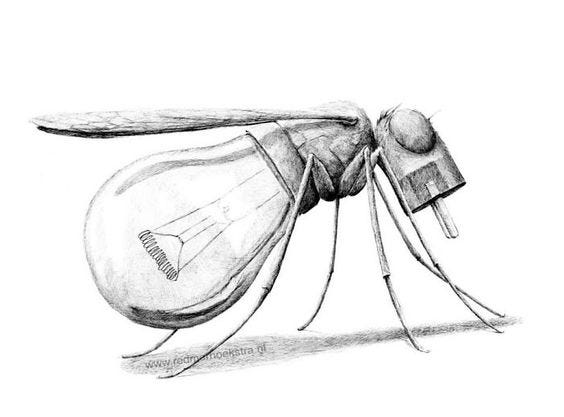

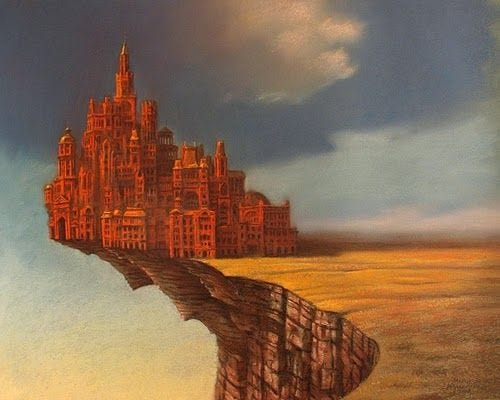
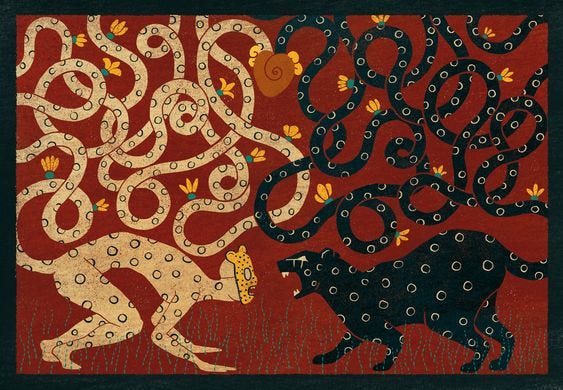
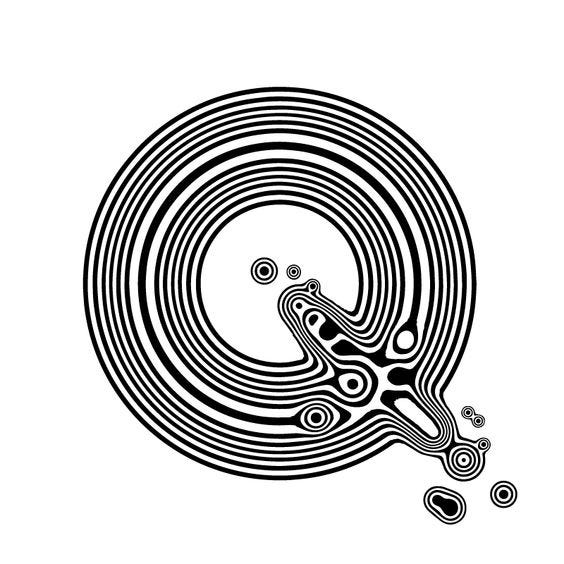
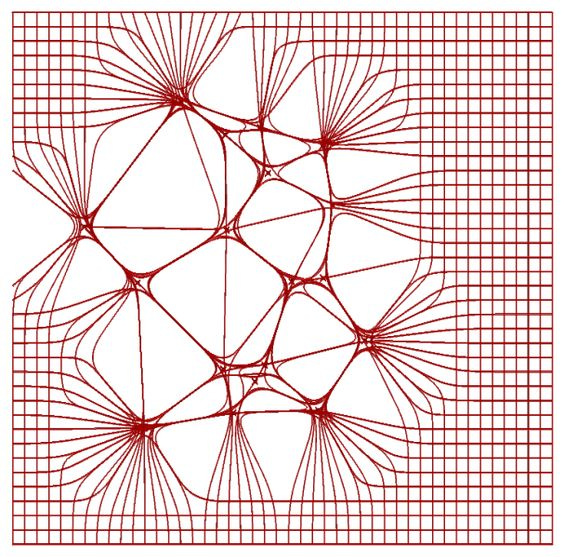
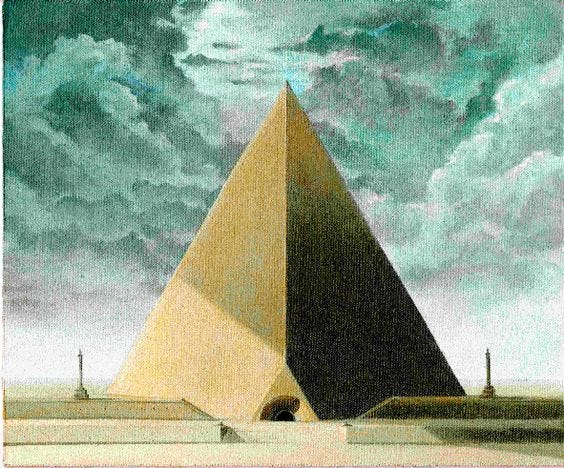
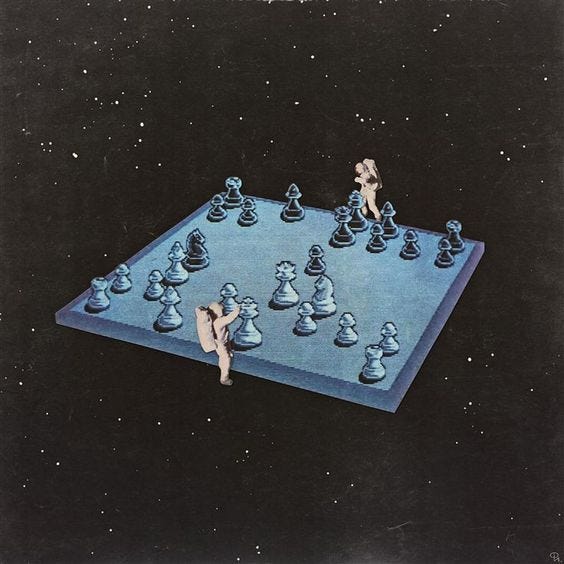

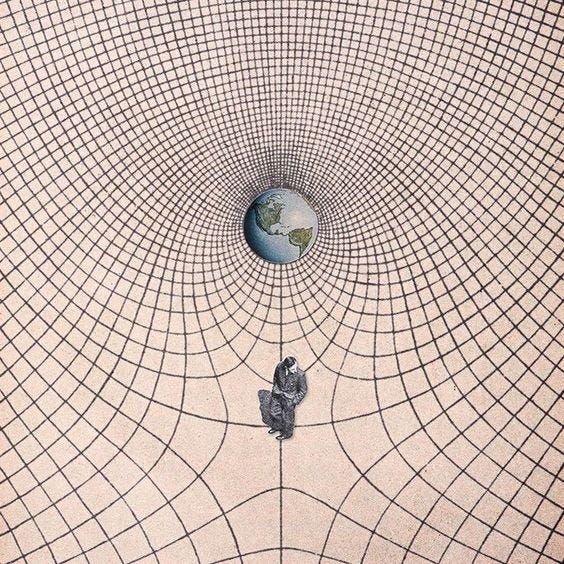
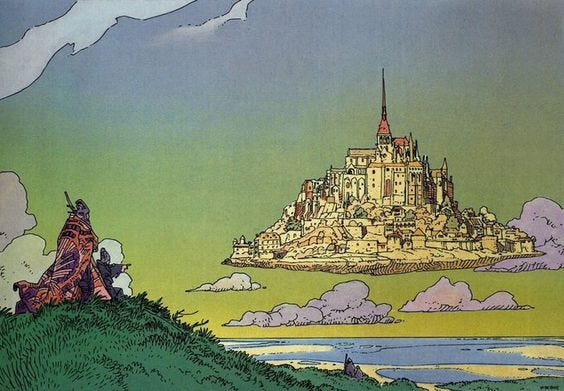
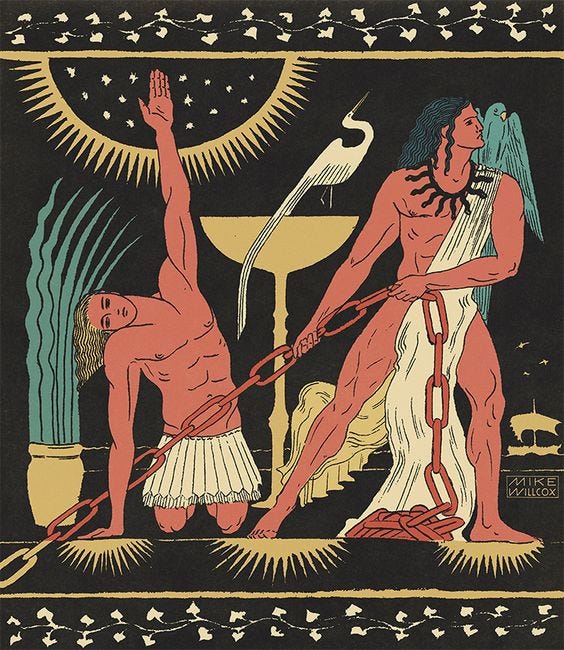
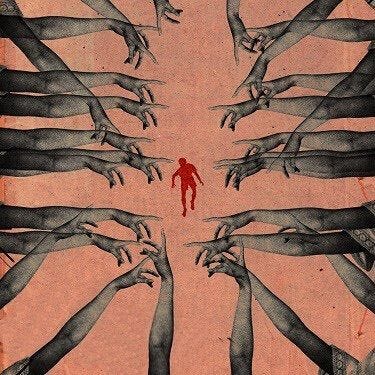

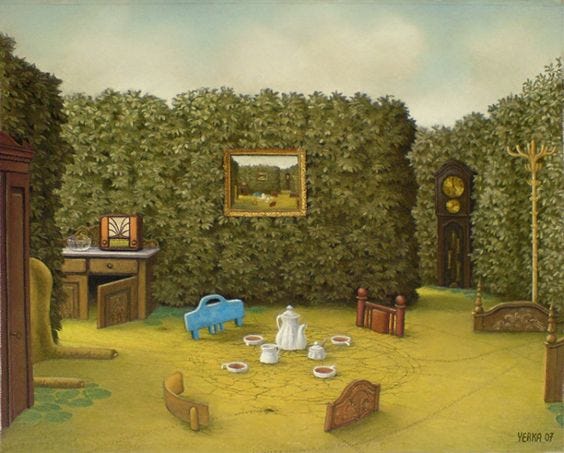








Share this post